-
 bitcoin
bitcoin $87959.907984 USD
1.34% -
 ethereum
ethereum $2920.497338 USD
3.04% -
 tether
tether $0.999775 USD
0.00% -
 xrp
xrp $2.237324 USD
8.12% -
 bnb
bnb $860.243768 USD
0.90% -
 solana
solana $138.089498 USD
5.43% -
 usd-coin
usd-coin $0.999807 USD
0.01% -
 tron
tron $0.272801 USD
-1.53% -
 dogecoin
dogecoin $0.150904 USD
2.96% -
 cardano
cardano $0.421635 USD
1.97% -
 hyperliquid
hyperliquid $32.152445 USD
2.23% -
 bitcoin-cash
bitcoin-cash $533.301069 USD
-1.94% -
 chainlink
chainlink $12.953417 USD
2.68% -
 unus-sed-leo
unus-sed-leo $9.535951 USD
0.73% -
 zcash
zcash $521.483386 USD
-2.87%
Can we intervene when the negative line shrinks and pulls back to the 30-minute MA60?
A pullback to the 30-minute MA60 with shrinking negative momentum offers high-probability entry signals in crypto trends.
Jun 29, 2025 at 04:43 am
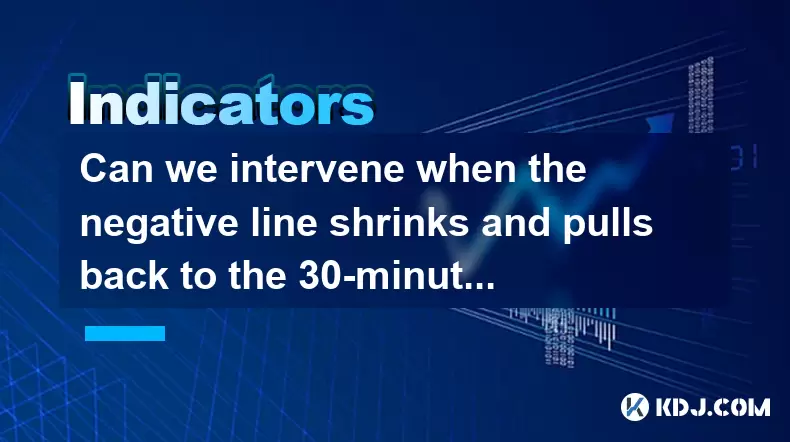
Understanding the 30-Minute MA60 in Cryptocurrency Trading
In cryptocurrency trading, technical indicators play a crucial role in decision-making. One of the most commonly used tools is the Moving Average (MA), specifically the 30-minute MA60, which calculates the average price over the last 60 periods on a 30-minute chart. Traders often look for price pullbacks to key moving averages as potential entry points. The 30-minute MA60 acts as a dynamic support or resistance level, especially in trending markets.
When traders refer to 'negative line shrinking,' they are typically observing a contraction in bearish momentum, often seen through oscillators like the MACD histogram or other momentum indicators turning less negative. This can signal a temporary pause or reversal in a downtrend.
Identifying Pullback Opportunities at MA60
A pullback to the 30-minute MA60 occurs when the price retraces from a recent high or low and touches or hovers near this key moving average. In an uptrend, a pullback to the MA60 may present a buying opportunity, while in a downtrend, it could offer a shorting setup. The idea is that strong trends tend to respect these moving averages during corrections.
To identify such opportunities:
- Monitor the price action around the 30-minute MA60
- Observe whether volume increases or decreases during the pullback
- Look for candlestick patterns indicating rejection or reversal near MA60
The key is not only to spot the pullback but also to assess the strength of the trend and the likelihood of continuation after the pullback completes.
How to Interpret Shrinking Negative Momentum
Shrinking negative momentum implies that the selling pressure is weakening. This can be visualized using various indicators:
- MACD Histogram: When the bars become smaller and less negative, it suggests decreasing bearish energy
- RSI: A move from below 30 back toward 50 might indicate exhausted sellers
- Volume Profile: Lower volume during downside moves indicates lack of conviction among bears
Combining these signals with price touching or approaching the 30-minute MA60 gives a confluence of factors suggesting a possible intervention point.
It's essential to avoid acting too early. Wait for confirmation that the momentum has indeed shifted before considering any trade entries.
Entry Strategies Around MA60 and Shrinking Negativity
When both the price pullback aligns with the 30-minute MA60 and there’s evidence of shrinking negative momentum, traders can consider entering positions. Here are some strategies:
- Watch for candlestick reversals near MA60, such as bullish engulfing or hammer patterns
- Use trendline breaks or channel bounces to confirm resumption of trend
- Enter upon breakout above recent swing high post-pullback
- Place stop-loss just beyond the MA60 if it acted as support/resistance
- Consider scaling into position if price consolidates before continuing the trend
These strategies should be tailored based on the broader market context and risk tolerance.
Risk Management During Pullbacks to MA60
Even with favorable conditions, risk management remains critical. Here are steps to protect your capital:
- Set a tight stop-loss below the MA60 if going long, or above it if shorting
- Use a risk-reward ratio of at least 1:2
- Avoid over-leveraging, especially during volatile crypto sessions
- Monitor news events or macroeconomic data that could invalidate the setup
- Adjust position size based on volatility and account size
Risk control ensures that even if a few trades fail, the overall portfolio remains intact and profitable in the long run.
FAQs
Q1: What time frame is best for combining MA60 with momentum analysis?While the 30-minute chart is common, traders can apply similar logic across different time frames. Shorter time frames like 5-minute or 15-minute charts may offer more frequent signals but with higher noise, while longer frames like 1-hour or 4-hour may give stronger, clearer setups.
Q2: Can I use MA60 as a standalone indicator?Using MA60 alone is not recommended. It works best when combined with momentum indicators, volume, and price action analysis to filter out false signals and improve accuracy.
Q3: How do I know if a pullback to MA60 is genuine or a trap?Look for confluence of factors—if multiple indicators like RSI, MACD, and volume align with the pullback, it’s more likely to be valid. Also, check higher time frame trends to ensure alignment.
Q4: Should I always wait for a full pullback to MA60 before entering?Not necessarily. Sometimes price only approaches MA60 without touching it and still resumes the trend. In such cases, using a trend-following strategy with trailing entries can be effective.
Disclaimer:info@kdj.com
The information provided is not trading advice. kdj.com does not assume any responsibility for any investments made based on the information provided in this article. Cryptocurrencies are highly volatile and it is highly recommended that you invest with caution after thorough research!
If you believe that the content used on this website infringes your copyright, please contact us immediately (info@kdj.com) and we will delete it promptly.
- US Government's Bitcoin Stance Steadies Crypto's Wild Ride Amid Market Volatility
- 2026-02-05 19:05:01
- Bear Market Scenarios Unpacked: Analyst PlanB's Insights and Market Outlook
- 2026-02-05 19:00:02
- ZKsync Price Manipulation Probe on Upbit Sparks Regulatory Scrutiny in South Korea
- 2026-02-05 19:00:02
- FxWirePro, Trending Coins, and CoinGecko Insights: Navigating the Crypto Landscape
- 2026-02-05 19:15:01
- Binance Dominates Crypto Reserves with $155B PoR, Bolstering User Trust
- 2026-02-05 19:10:01
- Stablecoins, MiCA, and the Evolving Financial System: A New Era Dawns
- 2026-02-05 19:10:01
Related knowledge
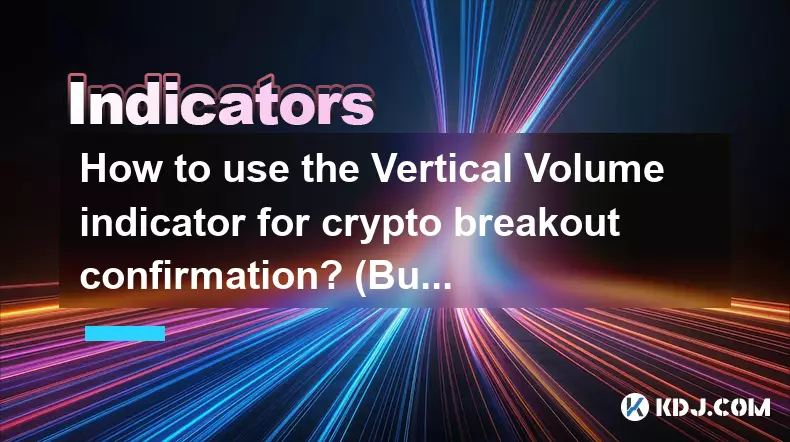
How to use the Vertical Volume indicator for crypto breakout confirmation? (Buying Pressure)
Feb 05,2026 at 04:19am
Understanding Vertical Volume in Crypto Markets1. Vertical Volume displays the total traded volume at specific price levels on a chart, visualized as ...
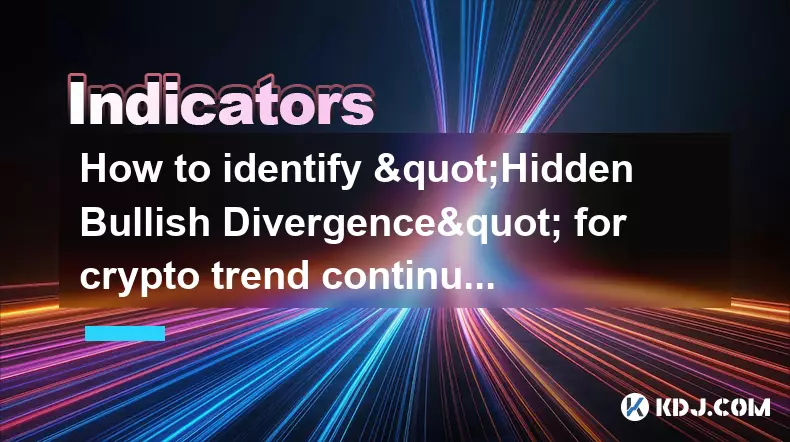
How to identify "Hidden Bullish Divergence" for crypto trend continuation? (RSI Guide)
Feb 04,2026 at 05:19pm
Understanding Hidden Bullish Divergence1. Hidden bullish divergence occurs when price forms a higher low while the RSI forms a lower low — signaling u...
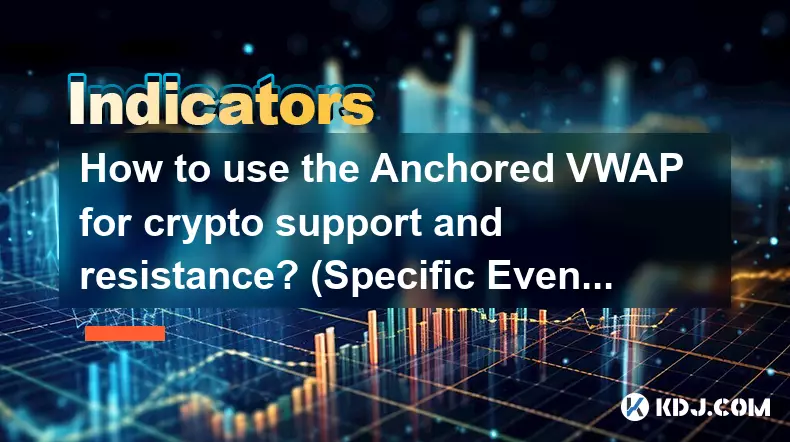
How to use the Anchored VWAP for crypto support and resistance? (Specific Events)
Feb 05,2026 at 01:39am
Anchored VWAP Basics in Crypto Markets1. Anchored Volume Weighted Average Price (VWAP) is a dynamic benchmark that calculates the average price of an ...
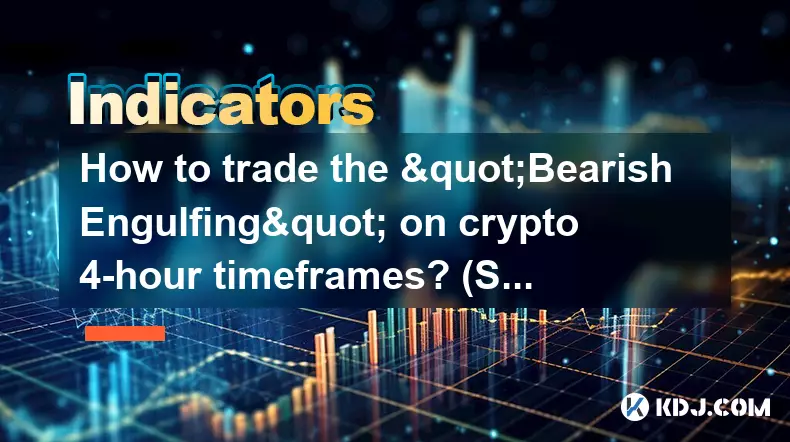
How to trade the "Bearish Engulfing" on crypto 4-hour timeframes? (Short Setup)
Feb 04,2026 at 09:19pm
Bearish Engulfing Pattern Recognition1. A Bearish Engulfing forms when a small bullish candle is immediately followed by a larger bearish candle whose...
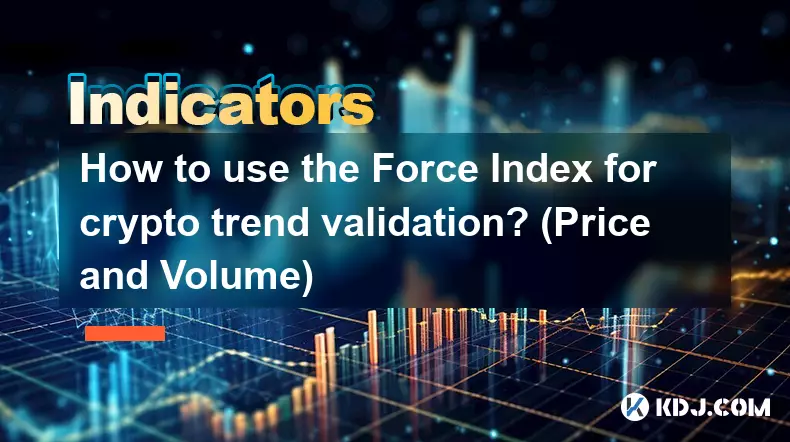
How to use the Force Index for crypto trend validation? (Price and Volume)
Feb 04,2026 at 10:40pm
Understanding the Force Index Fundamentals1. The Force Index measures the power behind price movements by combining price change and trading volume in...
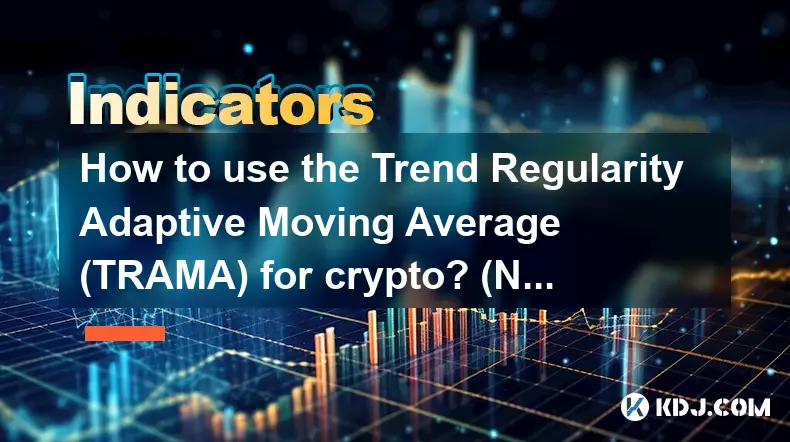
How to use the Trend Regularity Adaptive Moving Average (TRAMA) for crypto? (Noise Filter)
Feb 04,2026 at 07:39pm
Understanding TRAMA Fundamentals1. TRAMA is a dynamic moving average designed to adapt to changing market volatility and trend strength in cryptocurre...

How to use the Vertical Volume indicator for crypto breakout confirmation? (Buying Pressure)
Feb 05,2026 at 04:19am
Understanding Vertical Volume in Crypto Markets1. Vertical Volume displays the total traded volume at specific price levels on a chart, visualized as ...

How to identify "Hidden Bullish Divergence" for crypto trend continuation? (RSI Guide)
Feb 04,2026 at 05:19pm
Understanding Hidden Bullish Divergence1. Hidden bullish divergence occurs when price forms a higher low while the RSI forms a lower low — signaling u...

How to use the Anchored VWAP for crypto support and resistance? (Specific Events)
Feb 05,2026 at 01:39am
Anchored VWAP Basics in Crypto Markets1. Anchored Volume Weighted Average Price (VWAP) is a dynamic benchmark that calculates the average price of an ...

How to trade the "Bearish Engulfing" on crypto 4-hour timeframes? (Short Setup)
Feb 04,2026 at 09:19pm
Bearish Engulfing Pattern Recognition1. A Bearish Engulfing forms when a small bullish candle is immediately followed by a larger bearish candle whose...

How to use the Force Index for crypto trend validation? (Price and Volume)
Feb 04,2026 at 10:40pm
Understanding the Force Index Fundamentals1. The Force Index measures the power behind price movements by combining price change and trading volume in...

How to use the Trend Regularity Adaptive Moving Average (TRAMA) for crypto? (Noise Filter)
Feb 04,2026 at 07:39pm
Understanding TRAMA Fundamentals1. TRAMA is a dynamic moving average designed to adapt to changing market volatility and trend strength in cryptocurre...
See all articles























![KING vs PAINIFY😳 (1v1 ZONEWARS) [FORTNITE TOKEN/WAGER] KING vs PAINIFY😳 (1v1 ZONEWARS) [FORTNITE TOKEN/WAGER]](/uploads/2026/02/05/cryptocurrencies-news/videos/origin_6984035326d58_image_500_375.webp)
![2/4 [U.S. Hot Search] CIA: Xi Jinping is a paranoid | Xi Jinping’s two phone calls | Shandong’s “Internet-addicted” teenagers rebelled against tyranny | A direct attack on the Chengdu hacker national team | Why GDP must grow by 5% | The bridge under construction by the China Railway 12th Bureau collapsed | Thousands of billions of dollars spent abroad and thirty billion domestic subsidies | 2/4 [U.S. Hot Search] CIA: Xi Jinping is a paranoid | Xi Jinping’s two phone calls | Shandong’s “Internet-addicted” teenagers rebelled against tyranny | A direct attack on the Chengdu hacker national team | Why GDP must grow by 5% | The bridge under construction by the China Railway 12th Bureau collapsed | Thousands of billions of dollars spent abroad and thirty billion domestic subsidies |](/uploads/2026/02/05/cryptocurrencies-news/videos/origin_69840a757417b_image_500_375.webp)

















































